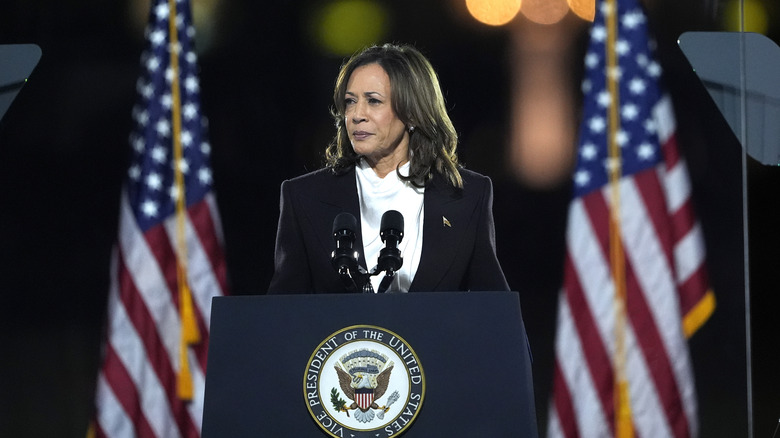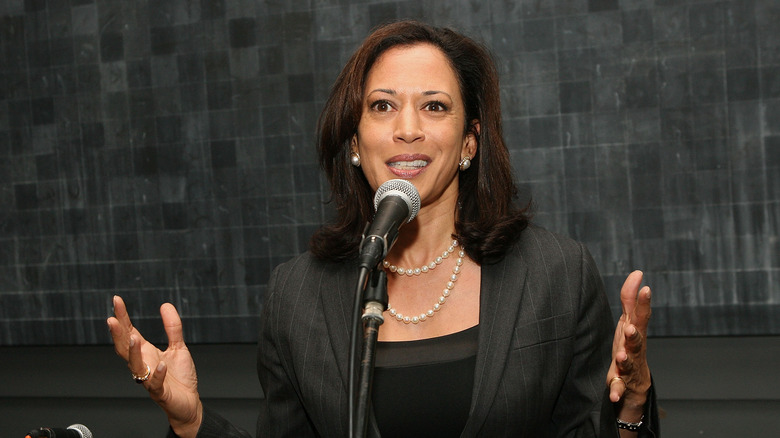Kamala Harris' Plagiarism Scandal, Explained
From day one, authority figures preach the golden rule of life: treat people the way you want to be treated. In professional life and academia, however, it seems there is another golden rule to master after we've mastered the first golden rule: do not plagiarize. The consequences for breaking the professional golden rule can be dire, and no one is exempt — not even Vice President Kamala Harris.
Vice President Harris' book, "Smart on Crime: A Career Prosecutor's Plan to Make Us Safer" has been under scrutiny due to suspected plagiarism. The book, originally published in 2009, is a deep dive into Kamala Harris' life as a prosecutor in the state of California, and her philosophy on criminal justice and how it affects the public at large. A critic found in Harris' book, co-authored by Joan O'C. Hamilton, several passages of nearly verbatim copy of information from a relatively alarming source.
Harris' suspected plagiarism came from Wikipedia
Jonathan Bailey, a New York Times plagiarism consultant, looked into the claims of Kamala Harris's plagiarism. On Plagiarism Today, Bailey wrote, "...While I believe the case is more serious than I commented to the New York Times, the overarching points remain. While there are problems with this work, the pattern points to sloppy writing habits, not a malicious intent to defraud." He continued on to say, "Is it problematic? Yes. But it's also not the wholesale fraud that many have claimed it to be."
Bailey also, however, admitted that the plagiarism in question came directly from Wikipedia, a source that has been fairly contentious since it first came about due to its collaborative nature. When contributing to a Wikipedia article, one does not need any sort of credentials. Of the two paragraphs in Harris's book that were copied directly from Wikipedia, Bailey said, "To be clear, that is plagiarism. It's compounded by the fact that Wikipedia is typically not seen as a reliable source."
Bailey made it clear that he does not believe Harris or her co-author had any malicious intent in their writing which was inevitably deemed plagiaristic, but it does beg the question of journalistic and writerly integrity.

